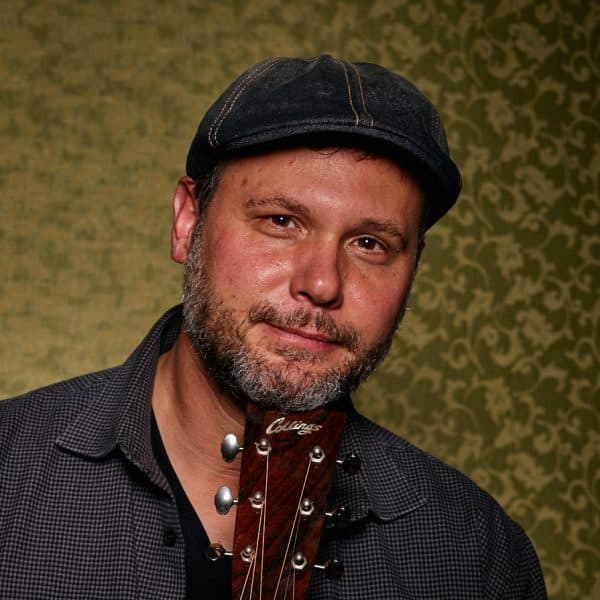Advertisement
Commentary
I love basketball for the game — and the politics
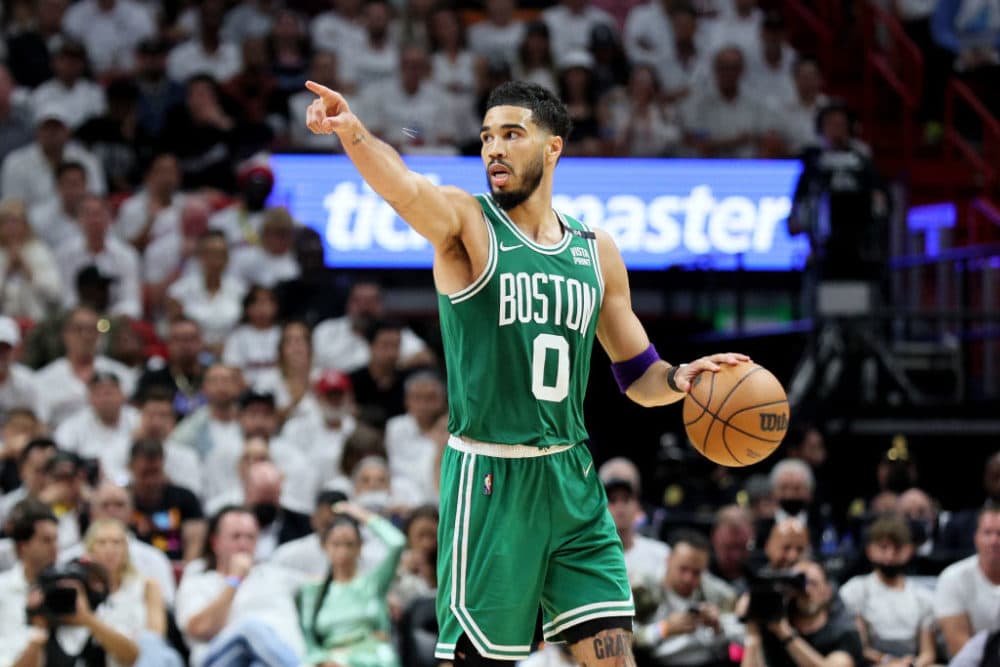
As the Boston Celtics fought their way into the NBA Finals last week, I've been reflecting on why professional basketball has become my favorite sport over the years. My appreciation for the nuances of the game increased when I started playing ball regularly in my 20s. I like the speed of play for TV. I like that there aren’t head injuries that regularly change the course of players' lives. And OK sure, it doesn't hurt to have a winning team to root for again.
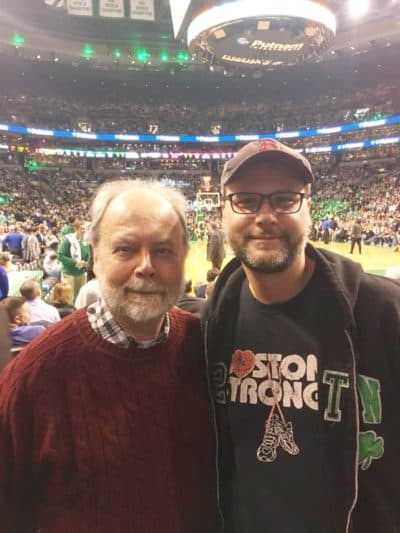
But the thing that puts the NBA and WNBA over the top for me is the way they've led major league sports in political outspokenness. While football, baseball and hockey have too often remained mute or clamped down on forms of player protest, basketball has increasingly become vocal on issues of social justice.
In the wake of George Floyd’s murder, the NBA and WNBA put prominent “Black Lives Matter” signs on the court during every playoff game; each player picked a social justice slogan to put on their jersey; the coaches created their own "Coaches for Racial Justice" coalition; and some, like Philadelphia 76ers’ Doc Rivers, used press conferences to make emotional speeches about the murder of Black people by police.
After back to back mass shootings in Buffalo and Uvalde last month, Golden State Warriors coach Steve Kerr refused to talk basketball at his playoff press conference, instead making an impassioned plea for gun reform.
And, just last week, the Miami Heat and Boston Celtics collaborated to do something I’ve never seen before in professional sports: After a moment of silence for the victims of the school shooting in Uvalde, the public address announcer asked fans to "contact your senators by calling 202-224-3121 to leave a message demanding their support for common sense gun laws," and then said, "You can also make change at the ballot box."
Dang! And that was in Florida.
Ultimately, this has been a player-led movement. LeBron James, the best baller of his generation, deserves a lot of credit for speaking up throughout his career. His leadership on racial justice issues helped set a new tone for the league — departing from the studied silence of the ‘80s and ‘90s and picking up where Bill Russell and Kareem Abdul-Jabbar left off. A new generation of players like Celtics’ Jaylen Brown and Enes Freedom (née Kanter) have taken up the mantle with their own activism.
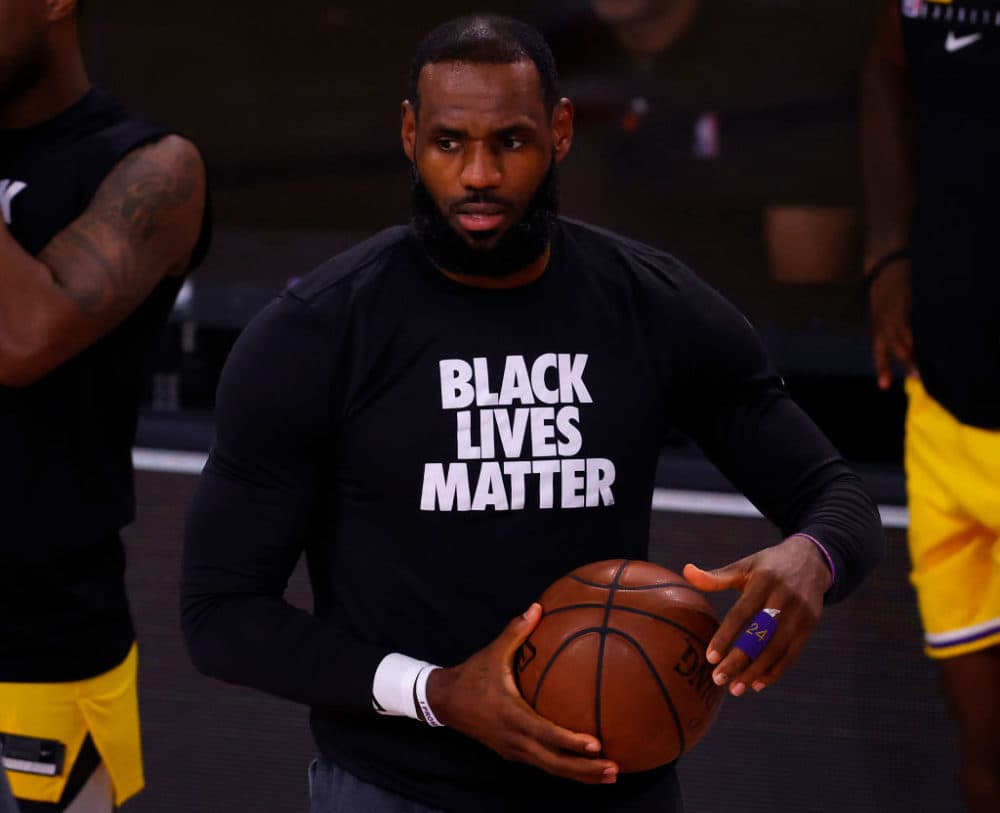
The WNBA has been even more impressive. Two years ago, the entire Atlanta Dream roster took on their team owner, Kelly Loeffler, who was then a Republican candidate for the U.S. Senate, for her anti-Black Lives Matter stance. That inspired the rest of the league to help support Rev. Raphael Warnock in his winning bid to become Georgia’s first-ever Black senator.
Future Hall-of-Famer Dwayne Wade has been powerfully public in support of his trans daughter, Zaya. And it's been impressive to watch Charles Barkley, who once declared "I’m not a role model," take an increasingly vocal stance on gay and trans rights from his platform on the sport's most influential commentary show.
I don't want to overstate the case. The NBA is a profit-driven league. In 2019, owners --and players too, notably LeBron -- made a point of choosing big potential earnings in mainland China over support for democracy protests in Hong Kong. It wasn't the league's finest moment.
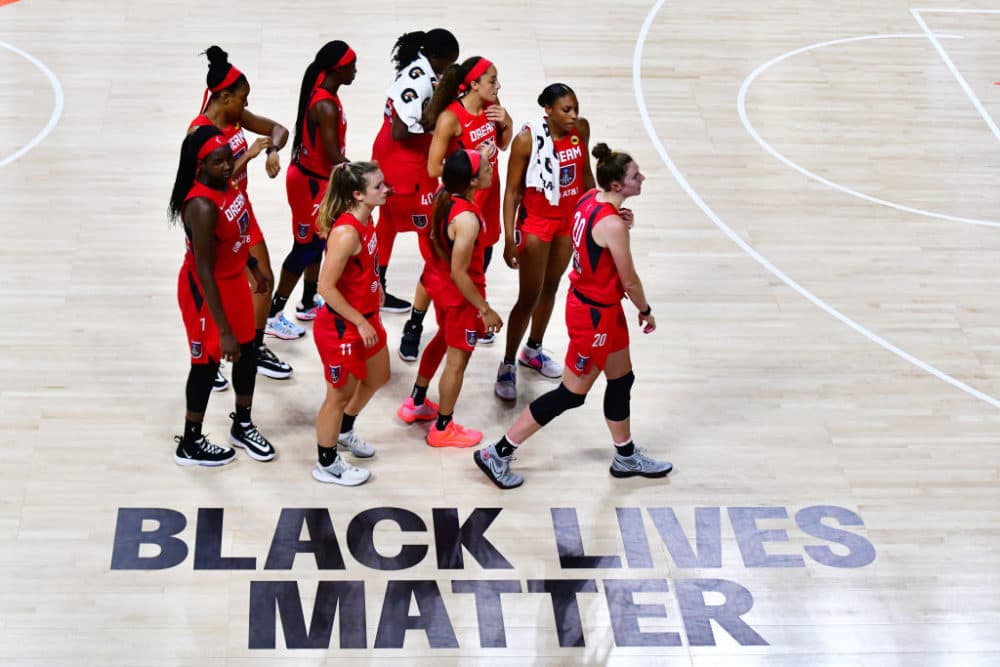
But that's part of the point: To some degree, the political shift in the NBA does have to do with money.
The political divisions in America are so deep that companies and professional associations have to choose their audiences. Disney was forced to decide this year if they were going to stand by Florida's “Don’t Say Gay” legislation or speak out against it. Their consumers and employees were no longer willing to interpret silence as a middle ground. The same is true in professional sports. The fanbase and staff of the NBA and WNBA have shifted: silence on shooting massacres and the killing of unarmed Black Americans is no longer acceptable.
I attribute a lot of this shift to an increasing acknowledgement and embrace, throughout the 2000s, of basketball as a celebration of Black culture. LeBron, Giannis, Durant, Candace Parker, A'ja Wilson — they're not just great players, they're the face of their sport. And they're supported by Black player majorities of nearly 75% in both the NBA and WNBA.
Over time, star power has translated into corporate sway. Steady pressure by Black athletes has slowly forced the league to hire more Black coaches, assistant coaches, and front office staff, pushing it towards greater political investment in social justice outcomes at the management level. Meanwhile, owners like the Los Angeles Clippers' Donald Sterling, who has a history of making racist remarks, were forced out as the culture shift left them behind. (It's worth noting that, while the process has been all too slow for many, the NBA has also made significant strides in hiring female assistant coaches and seems poised to be the first of the four big American sports leagues to hire a female head coach.)
Fans who don't like where basketball is heading have moved on to other sports, while folks like me are more invested in the game.
Steady change has a snowball effect. Fans who don't like where basketball is heading have moved on to other sports, while folks like me are more invested in the game. This same kind of momentum helped move football in the other direction. At least until the second half of Trump's presidency, the NFL seemed happy to play footsie with the president -- not least here in Boston with Kraft, Belichick and Brady. That never would have flown in the NBA.
Last week, Major League Baseball finally stepped up in a new way when the Yankees and Tampa Bay Rays collaborated to post facts about gun violence on their social media platforms rather than sharing updates from their game. Plenty of fans were unhappy. But I hope it's a sign of things to come for that sport.
Many Americans push back on the intersection of sports and politics. They look to their favorite teams for release from the daily grind of our national divide and ask, "Why can't sports just be sports?" It's a response that lacks understanding of the role sports has long played in our politics — from Muhammad Ali and Billy Jean King, to Colin Kaepernick and Megan Rapinoe.
It's exactly because of how deeply it touches our lives that we need sports to speak up for justice.
Go Celtics.
